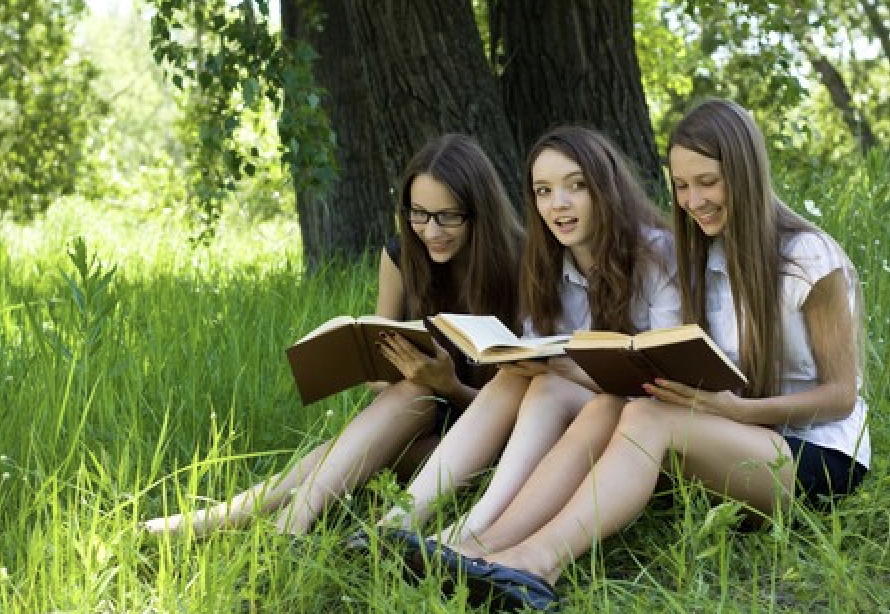【易伯华出品】雅思阅读机经真题解析-Hunting Perfume in Madagascar!
北京雅思培训,雅思备考资料,雅思网课,雅思培训机构,雅思保分班,雅思真题,雅思课程
易伯华独家,雅思阅读机经真题解析。一切患有雅思阅读刷题强迫症的烤鸭,请看这里。易伯华精心整理了一批雅思阅读机经真题。如果你的剑桥雅思阅读已是烂熟于心,那么这一系列的雅思阅读机经真题真的很适合你,搭配上绝对原创的讲解,还有全文的中文翻译,这等阅读大餐,还等什么!
A
Ever since the unguentari (古罗马时期玻璃器皿) plied their trade in ancient Rome,
perfumers have to keep abreast of changing fashions. These days they have
several thousand ingredients to choose from when creating new scents, but there
is always demand for new combinations. The bigger the 'palette' of smells, the
better the perfumer's chance of creating something fresh and appealing. Even
with everyday products such as shampoo and soap, kitchen cleaners and washing
powders, consumers are becoming increasingly fussy. And many of today's
fragrances have to survive tougher treatment than ever before, resisting the
destructive power of bleach or a high temperature wash cycle. Chemists can
create new smells from synthetic molecules, and a growing number of the odours
on the perfumer's palette are artificial. But nature has been in the business
far longer.
B
The island of Madagascar (马达加斯加) is an evolutionary hot spot; 85% of its
plants are unique, making it an ideal source for novel fragrances. Last October,
Quest International, a company that develops fragrances for everything from the
most delicate perfumes to cleaning products, sent an expedition to Madagascar in
pursuit of some of nature's most novel fragrances. With some simple technology,
borrowed from the pollution monitoring industry, and a fair amount of ingenuity,
the perfume hunters bagged 20 promising new aromas in the Madagascan rainforest.
Each day the team set out from their "hotel"-a wooden hut lit by kerosene lamps,
and trailed up and down paths and animal tracks, exploring the thick vegetation
up to 10 meters on either side of the trail. Some smells came from obvious
places, often big showy flowers within easy reach. Others were harder to pin
down. “Often it was the very small flowers that were much more interesting,”
says Clery. After the luxuriance (肥沃) of the rainforest, the little-known island
of Nosy Hara was a stark, dry place-geologically and biologically very different
from the mainland. “Apart from two beaches, the rest of the island is
impenetrable, except by hacking through the bush," says Clery. One of the
biggest prizes here was a sweet-smelling sap weeping from the gnarled branches
of some ancient shrubby trees in the parched interior. So far no one has been
able to identify the plant.
C
With most flowers or fruits, the hunters used a technique originally designed
to trap and identify air pollutants. The technique itself is relatively simple.
A glass bell jar or flask is fitted over the flower. The fragrance molecules
(分子) are trapped in this ‘headspace’and can be extracted by pumping the air out
over a series of filters which absorb different types of volatile molecules.
Back home in the laboratory, the molecules are flushed out of the filters and
injected into a gas chromatograph for analysis. If it is impossible to attach
the headspace gear, hunters fix an absorbent probe close to the source of the
smell. The probe looks something like a hypodermic syringe, except that the
'needle' is made of silicone rubber which soaks up molecules from the air. After
a few hours, the hunters retract the rubber needle and seal the tube, keeping
the odour molecules inside until they can be injected into the gas chromatograph
in the laboratory.
D

Some of the most promising fragrances were those given off by resins (树脂)
that oozed from the bark (树皮) of trees. Resins are the source of many
traditional perfumes, including frankincense and myrrh (乳香和没药). The most
exciting resin came from a Calophyllum (胡桐)tree, which produces a strongly
scented medicinal oil. The sap of this Calophyllum smelt rich and aromatic, a
little like church incense. But it also smelt of something like fragrance
industry has learnt to live without, castoreum (海狸香), a substance extracted from
the musk glands of beavers and once a key ingredient in many perfumes. The
company does not use animal products any longer, but it was wonderful to find a
tree with an animal smell.
E
The group also set out from the island to capture the smell of coral reefs.
Odors that conjure up sun kissed seas are highly sought after by the perfume
industry. “ From the ocean, the only thing we have is seaweed (海带), and that has
a dark and heavy aroma. We hope to find something unique among the corals,” says
Dir. The challenge for the hunters was to extract a smell from water rather than
air. This was an opportunity to try Clery’s new “aquaspace”apparatus (小装置) – a
set of filters that work underwater. On Nosy Hara, jars were fixed over knobs of
coral about 2 meters down and water pumped out over the absorbent filters. So
what does coral smell like? “It’s a bit like lobster and crab,” says Clery. The
team’s task now is to recreate the best of their captured smells. First they
must identify the molecules that make up each fragrance. Some ingredients may be
quite common chemicals. But some may be completely novel, or they may be too
complex or expensive to make in the lab. The challenge then is to conjure up the
fragrances with more readily available materials. “We can avoid the need to
import plants from the rainforest by creating the smell with a different set of
chemicals from those in the original material, ”says Clery. "If we get it right,
you can sniff the sample and it will transport you straight back to the moment
you smelt it in the rainforest. "
Question 14-18
The reading Passage has five paragraphs A-E
Which paragraph contains the following details?
Write the correct letter A-E in boxes 14-18 on your answer sheet.
NB You may use any letter more than once.
14. One currently preferred spot to pick up plants for novel finding
15. A new task seems to be promising yet producing limited finding in
fragrance source
16. The demanding conditions for fragrance to endure.
17. A substitute for substance no longer available to the perfume
manufacture
18. Description of an outdoor expedition on land chasing new fragrances.
Question 19-23
Do the following statements agree with the information given in Reading
Passage 2?
In boxes 19-23 on your answer sheet, write
TRUE if the statement is true
FALSE if the statement is false
NOT GIVEN if the information is not given in the passage
19. Manufacturers can choose to use synthetic odours for the perfume
nowadays.
20. Madagascar is chosen to be a place for hunting plants which are rare in
other parts of the world.
21. Capturing the smell is one of the most important things for creating new
aromas.
22. The technique the hunters used to trap fragrance molecules is totally out
of their ingenuity.
23. Most customers prefer the perfume made of substance extracted from the
musk glands of animals.
Question 24-26
Filling the blanks and answer the questions below with only one word.
A simple device used to trap molecules
(转第二页)


免费1对1规划学习方法


剑桥大学&双硕士